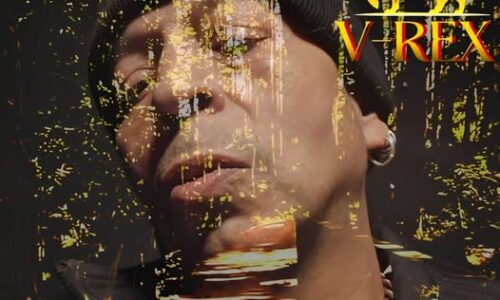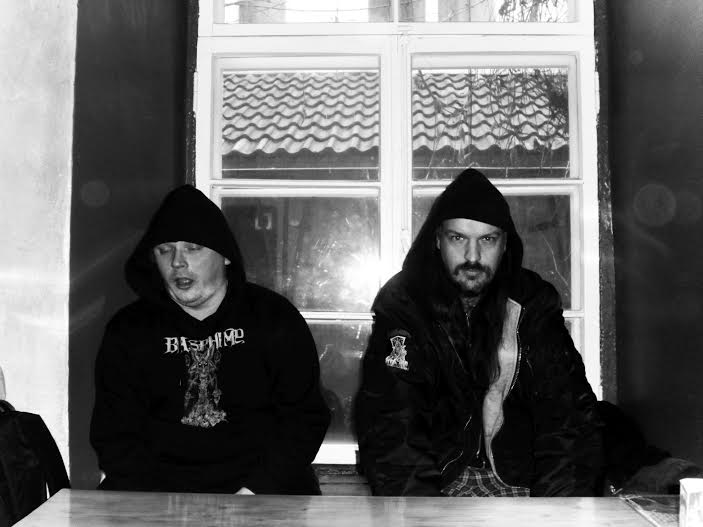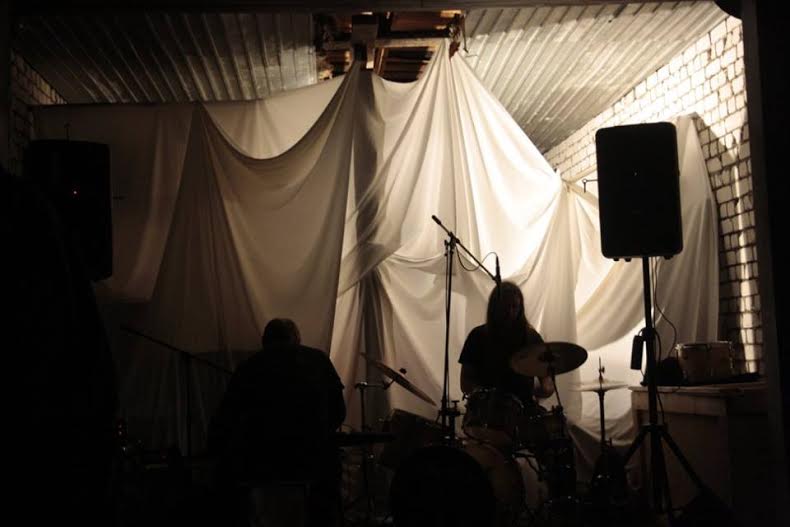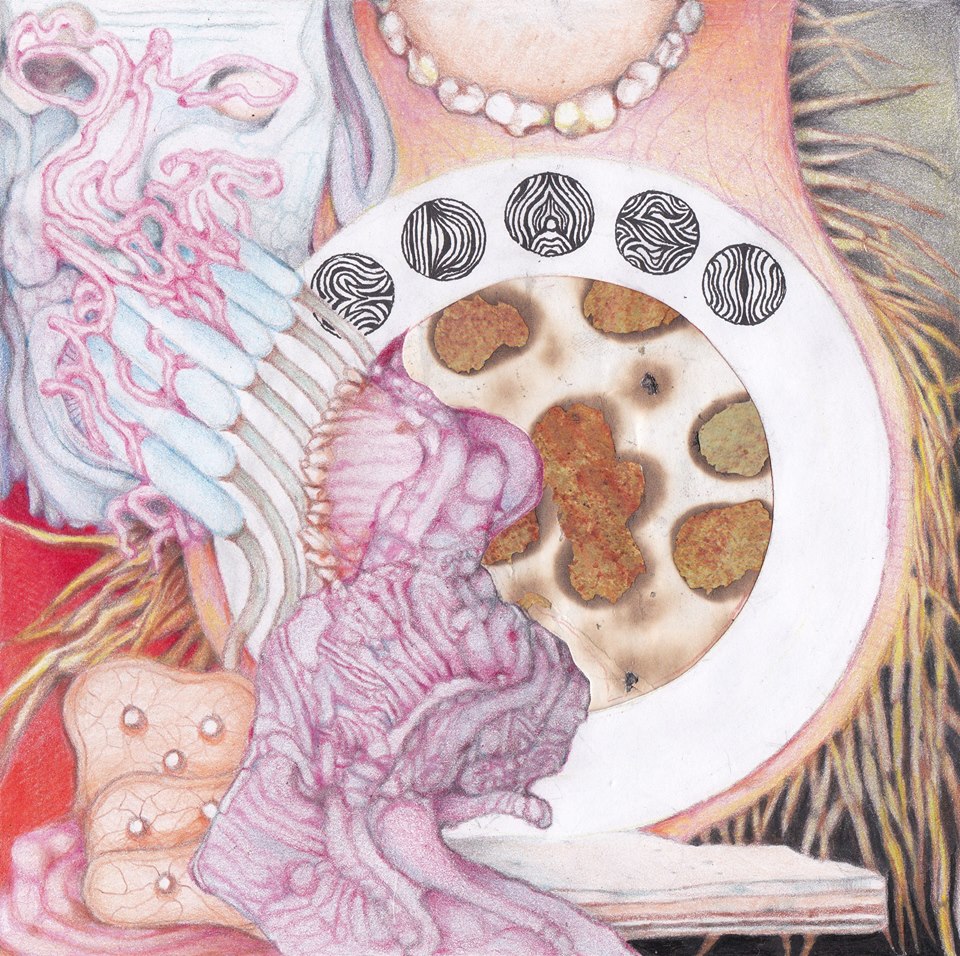Willie René er ute med sitt første soloalbum,
V-Rex, soloskive

 Not a household name, by any means, and Estonian Edasi is unlikely to ever become such either. The duo`s musical endeavours are challenging and about as far away from commercially accessible music as you can get. This beast is genuinely experimental, crafting long songs, only sparsely using vocals and not following traditional patterns at all.
Not a household name, by any means, and Estonian Edasi is unlikely to ever become such either. The duo`s musical endeavours are challenging and about as far away from commercially accessible music as you can get. This beast is genuinely experimental, crafting long songs, only sparsely using vocals and not following traditional patterns at all.
The duo is lead by Mihkel Kleis, and helped by his parter in crime, Veiko Rebane, his works might be worth following if you have an interest in experimental stuff. If you have an open mind, that is.
The name of the band carries certain political connotations, referring to the former newspaper of your home country. Have you chosen the moniker for this reason? Is it a statement of Estonian pride?
«No connection with that old Soviet Estonian newspaper or with politics in general whatsoever. And I don’t have any Estonian pride, haha. I don’t believe in mixing art with social or political topics. What I do believe is continuous progression, moving forward, exploring the unknown – that’s what the name stands for.
Obviously, music as challenging as this is never going to sell tons of records and be performed at the biggest stages at large festivals. The motivation behind it all must lay elsewhere. Is it all about the need to let off creative steam, or is there something else lurking behind the scenes here that has given you drive and endurance to do experimental stuff like this for about 15 years now?
«Oh, can any band or musician or artist that is in it for the money be taken seriously? I don’t think so. Not selling tons of records and having commercial success is not a problem. Compromising, now that would be a real problem. I’d hate that if making music would be like a job. I’m working and doing something I don’t really care about just to get money for living, and the rest of the time I spend on doing what I really like, which is music. Indeed it’s all about the need to let off creative steam.»
Prior to Edasi you had another band, Luarvik Luarvik. You told me Edasi was born due to a need to make more extreme music. Does this mean the former band is dead and buried, that Edasi is your only musical outlet presently?
«Yes, Luarvik Luarvik is dead and buried, but I have other projects besides Edasi. At the moment the main one is Ratkiller, it’s experimental electronic dance music thing, sort of. Occasionally I also do some collaborations, the most recent was with Benzokai – ritualistic ambient, hip hop type of chanting – weird stuff like that. I’m always having hard time describing my music.»
Could you elaborate on your inspirations, to give the readers a slight feeling of how you sound?
«Uh, don’t know where to start. Basically, it’s the music that inspires me. Because the only time when I don’t listen to music is when I sleep. It’s been like that my whole life. There really isn’t much else. At one point I just started to have some ideas of my own. Due to the amount of it, I can’t really point out any specific names. It’s never been about certain style or genre or message in it. It’s a certain cathartic effect and pushing boundaries that I’m looking for.»
How would you describe the progression running through Edasi`s rather rich discography up till nowadays?
«I guess it’s growing more and more self-conscious in time. Not necessarily a good thing, but it’s a challenge. It has always been essentially a musical experiment, trying out different possibilities and new ways of expression. In the beginning I didn’t really know what I was doing. It was like stepping into dark foggy landscape with a possibility to move in whatever direction. After some time the territory is mapped, that also involves the borders, so it’s getting more limited. So, at this point with Edasi it’s having certain amount of tools and space to operate with and constantly ruling out what can and what can’t be done. That’s necessary for maintaining the focus.»
To our readers, your self-proclaimed flirtation with black metal might be the most natural gate into your music. What is it about black metal that intrigues you? Which black metal elements have you put to use on your albums so far?
«In the most abstract sense, it’s that same cathartic feel I mentioned before that attracts me in black metal. Also, it has a very unique spirituality in it, like no other form of music I know. Drive for chaos, intensity, mysticism. The overall dynamics, some specific rhythms, dirty production aesthetics and the vocals of Edasi are all in a way derived from black metal. I mean, black metal is the only thing me and Veiko think about when doing Edasi. It’s the one constant idea that everything else is based on. Of course Edasi isn’t meant to be a black metal band as a form of guitar rock, though some instruments like bass and drums are kept to maintain right mood. I guess it can be filed loosely under term black noise, but we’re definitely not a typical example of it.»
 And what about metal in general, this being a metal website and all, have you had any affiliations with the genre when growing up? You have posted pictures from death metal shows on your Facebook, so I guess at least this genre bears importance to you…
And what about metal in general, this being a metal website and all, have you had any affiliations with the genre when growing up? You have posted pictures from death metal shows on your Facebook, so I guess at least this genre bears importance to you…
«Sure, me and Veiko both grew up as metal fans, that’s the basis of our friendship and collaboration. It started with random heavy metal, whatever I was able to get as a 10 year old in late 80s. In the first half of the nineties I was mostly into death metal, and I also discovered black metal around that time. And at this moment I’m digging through lesser known heavy/speed/power metal of the 80s. But of course there has been constantly a lot of other stuff to listen to also. Being limited to one style has never been my thing.»
An album was released in 2004, but then it didn`t happen much until about five years ago. What was the reason for the interim?
«Freddy Krueger Death Chant was released in 2004. Actually under my own name at first, but in retrospect I added it to Edasi discography, because it carried the same blackened lo-fi aesthetics. The long pause between albums was because at that time I was still mostly focused on Luarvik Luarvik, I didn’t have the possibility to record at home and couldn’t afford a studio.»
These last years you`ve, on the other hand, been very active, releasing new stuff frequently. I assume this is a sign that things are working well, meaning creativity running high, cooperation with Veiko working out well etc. Am I right?
«Due to my bizarre ideas and unwillingness to compromise it’s usually been very hard to find likeminded collaborators. There’s tons of stuff that annoys me, but I hate to tell others what they should do. Most of the time people just don’t have a slightest clue what I’m expecting because they simply lack knowledge. With Veiko it’s very different. He knows all that stuff by intuition and he’s open to experiments. We discuss and plan a lot what should and should not be done. I mean it’s a dialogue, the way it should really be. He has also found a lot of useful contacts, promotional stuff, something that I’m not too good with.»
How do you see the use of vocals in your music in general? It is sparsely used on the new album, and when used it doesn`t demand as much attention as it often does in other kinds of music. It keeps itself in the background. A lot of genres, not least pop music, tend be very vocally driven.
«For me vocal is nothing but an instrument. I’ve never payed attention to lyrics in music. That’s just rudimentary to me. Music as a medium is expressive enough on its own. In black metal though, the voice is a very important organic part of the whole. But there’s no need to spell it all out. The more obscure and undecipherable, the better. I think there’s room enough for expressing a wide variety of moods just by using specific vocal manners. And the mystic and chaotic nature of black metal allows it. I have no idea what Veiko is saying when he is screaming. We’ve never talked about it.»
How hard is it to get a message of some sort across when using vocals as you do? Or perhaps there is no particular message you`d like to get out there?
«Death, destruction, war against Christianity… Just kidding. What Edasi does is creating nightmares with sound. It’s extreme self-expression done in certain state of mind. I can’t say that I really think about delivering some kind of message. It’s beyond that. I mean, when doing music or art I’m not trying to answer questions or find solutions. It’s the opposite really – blurred out, unexplainable and illogical is how it should be.»
What`s the most challenging aspect for you as a composer when making music for Edasi?
«It’s mandatory to focus on a specific mood when I deal with Edasi. I think that’s the most challenging. It feels like walking on tightrope. Not really enjoyable, not something I would do every day. But I think it doesn’t have to be. It’s a self-exploration thing, trying to dig deeper and deeper into the dark subconscious, trying to find new extremes. The process is quite hard, almost psychotic sometimes, but it’s the result that counts.»
When you compose, in the early stages, do you see a whole, a kind of end product that you keep in mind through the whole process of creating, or is a song early on a stack of different parts that are eventually sewn together?
«A couple of thelatest recordings, including the new album, Fake Wheel, we have started as drums and bass jamming, but it could turn out whatever really – from right on blasting attack to feedback ambient. Then in the mixing process this raw material is treated like a sound collage.»
Some releases have been put out by you yourself while others have seen the light of day helped by labels. Which way do you prefer, and why?
 «Of course I prefer it to be done by a label. Self-releasing, well, it’s been just a desperate act to have it out. These have all been ultra-limited editions. I think the smallest was 7 copies. The upcoming Fake Wheel album, which is going to be released some time during autumn 2016 under Finnish Bestial Burst Records, is definitely our biggest breakthrough so far when it comes to contacts with labels.»
«Of course I prefer it to be done by a label. Self-releasing, well, it’s been just a desperate act to have it out. These have all been ultra-limited editions. I think the smallest was 7 copies. The upcoming Fake Wheel album, which is going to be released some time during autumn 2016 under Finnish Bestial Burst Records, is definitely our biggest breakthrough so far when it comes to contacts with labels.»
How much of a band is Edasi anyway? It is clearly your creation, but there have been other members involved through the years. Could you do it without the help of others?
«I think now when Veiko is basically a full time member it can be called a band, but before that it was indeed my solo project with tons of occasional members, whom I needed for live performances. The main reason why Veiko joined was that I was looking for a vocalist. I’ve done vocals on some Edasi releases, never been too good at it and it’s just something I really don’t want to do, but Veiko as a former vocalist of The Grey Calamity obviously has no problem with it.»
Are you picky when choosing places to play live? Music as this would probably be better suited for a dark and small cellar-like location than an outdoors stage during daytime with the sun shining. Or do you rather see all live performances as promoting of the band and hence a good thing?
«Edasi has performed in dark cellars, art galleries, on the street in daytime, all kinds of different venues in a lot of different places in Estonia during all these years. We played once in Latvia too, at Skanu Mezs festival. Maybe one of the most awkward shows was on a big stage in Rock Cafe where we were warming up for no less than King Crimson project. The venue was full of old prog rock admirers and the organizer, who really didn’t know about Edasi, was expecting something in the vain of my previous prog band Luarvik Luarvik. So, I wouldn’t really say that I’ve ever been picky about places. These days Edasi doesn’t perform live too often though. And I can’t remember that we’ve ever performed in a metal related event. Oh, actually there was one – we warmed up for Aluk Todolo a few years ago.»